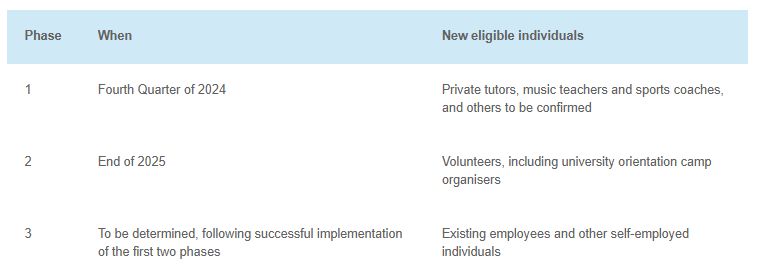The Hong Kong Government has announced its plans to expand the existing Sexual Conviction Record Check ("SCRC") scheme to enhance the protection of children and mentally incapacitated persons ("MIPs") from sexual abuse.
What is the SCRC scheme?
Currently, employers may request prospective employees, contract-renewal employees or staff assigned to organisations by outsourced service providers who would be involved in work that requires frequent or regular contact with children or MIPs to apply for a Sexual Conviction Record Check to be conducted in relation to them as part of the recruitment process.
The SCRC is a scheme administered by the Hong Kong Police to assist employers in assessing the suitability of job candidates to better protect children or MIPs from sexual abuse.
An application for a SCRC can only be made by the job candidate who would then need to share the result with their prospective employer. SCRC results only reveal whether the job candidate has or has not been convicted of a sexual offence in Hong Kong – they do not disclose the details of any convictions.
Limitations of the SCRC scheme
The SCRC scheme has a very narrow scope. It only applies if the following two conditions are met:
- The individual is a prospective employee, contract-renewal employee or staff assigned to the organisation by outsourced service providers; and
- The work to be undertaken is "child or MIP-related work". This is defined as work where usual duties involve, or are likely to involve, frequent or regular contact with children or MIPs.
Changes to the SCRC scheme
Following a public consultation, the Hong Kong Government plans to expand the scope of the SCRC scheme by adding new eligible individuals who may apply for a SCRC to be conducted in relation to them with a view to bolster the protection of children and MIPs. This will take place in three phases, as summarised in the table below:

Key takeaways
Employers in industries that involve working with children and MIPs (such as schools, tuition/activity centres and residential care homes for disabled persons) will soon be able to request SCRC results to be provided from a broader scope of eligible individuals. However, it is important to bear in mind that the SCRC scheme is designed to enhance the protection of children and MIPs from sexual abuse and employers should only request individuals to undergo a SCRC if it is relevant to their work. Employers should not request individuals to undergo a SCRC simply because they are curious about the sexual conviction history of individuals. If there is no reasonable need to know the sexual conviction history of the individual, obtaining this information may amount to excessive collection of personal data and breach the requirements of the Personal Data (Privacy) Ordinance.
The content of this article is intended to provide a general guide to the subject matter. Specialist advice should be sought about your specific circumstances.




